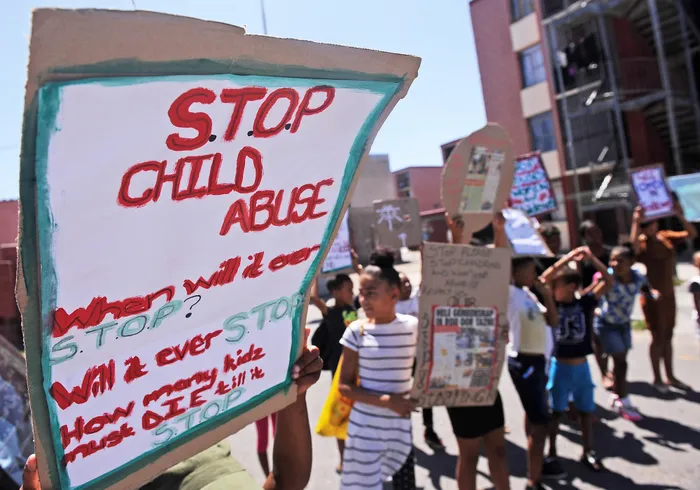Why many former convicts return to a life of crime

Children from Clarke Estate in Elsies River picket at the weekend against violence and abuse perpetrated against them. Picture: Courtney Africa / African News Agency (ANA) Children from Clarke Estate in Elsies River picket at the weekend against violence and abuse perpetrated against them. Picture: Courtney Africa / African News Agency (ANA)
Cape Town – Human Rights Commission commissioner Chris Nissen is among those clamouring for the issue of parole to be reviewed in light of the Tazne van Wyk and Michaela Williams murder cases.
The accused in both cases were out on parole when they committed their alleged crimes. Last Wednesday, a man on parole also allegedly raped a 14-year-old girl in Piketberg in the Swartland.
While the Justice and Correctional Services Ministry has indicated that it has commissioned a special research team to look into the parole system, in the absence of definitive figures on how many former prisoners reoffend, many experts believe it could be as high as 85%.
Parliament's Correctional Services portfolio committee and the National Institute for Crime Prevention and the Reintegration of Offenders (Nicro) – one of just a handful of organisations assisting in the reintegration of former offenders in the Western Cape – warned eight years ago that there is a lack of rehabilitation for prisoners.
This was when the government released more than 19 000 prisoners as part of then president Jacob Zuma's special remission of sentences.
Nicro's Vanessa Padayachee said then the process was flawed, as the offenders were not properly rehabilitated before being released, which is still the case.
"Victims and the public were not adequately consulted. Concerns for the risks were not consulted, because there were offenders released with dangerous offences," Padayachee said.
Last December, President Cyril Ramaphosa granted a "special remission of sentences" to prisoners and those out on parole, but apparently not to those who committed sexual or violent offences or were declared dangerous criminals.
Padayachee told the Cape Times on Monday that not enough attention is being paid to the reintegration of former inmates into their communities.
They are getting very little support from the government on how to cope when they are reintegrated with their families and the community, and in the presence of the same criminal element, she said.
"Families pressurise ex-offenders to earn an income, but there is a stigma attached to having a criminal record and certain restrictions which make it very difficult for parolees, for example, to find a job," said Padayachee.
This creates a situation in may instances where they return to a life of crime to provide for their families.
At the heart of the problem is the fact that prisons are largely not a rehabilitative space, said Padayachee.
That's why she believes sending an offender to prison, which are overcrowded and ruled by violent gangs, should only be a last resort, with the need for alternative sentences for lesser crimes.
She believes many former convicts want to become productive citizens, but the cards are stacked against them – not to mention the high unemployment rate.